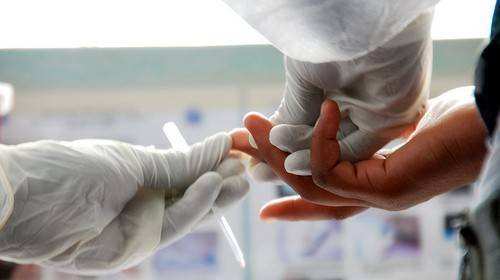
An international team of scientists has discovered a new, “much more aggressive” HIV strain in some patients in Cuba that can develop into AIDS within just three years of infection. Researchers said the progression happens so fast that treatment with antiretroviral drugs may come too late.
The new strain was found by researchers at KU Leuven’s Laboratory for Clinical and Epidemiological Virology, based in Belgium. The team’s findings are reported in the journal EBio Medicine.
Without treatment, HIV infection usually takes 5 to 10 years to turn into AIDS, said Dr. Anne-Mieke Vandamme, the study’s lead author and a medical professor at Belgium’s University of Leuvan.
That’s why Cuban health officials were perplexed when they started seeing reports of rapid progression within just a few years. Hoping to solve the mystery, they called on Dr. Vandamme’s team to study the patients more closely.
The researchers took blood results from 73 recently infected patients – 52 of them diagnosed with AIDS, and 22 patients who had progressed to the disease after a normal long period of being infected with HIV.
None of the patients had received treatment for the virus, and all of the patients infected with the mutated strain of HIV developed AIDS within three years, the team found.
New variant is a combination of 3 HIV strains
While fast progression of HIV to AIDS is usually the result of the patient’s weak immune system rather than the particular subtype of HIV, what’s happening in Cuba is different, said Dr. Vandamme.
“Here we had a variant of HIV that we found only in the group that was progressing fast. Not in the other two groups. We focused in on this variant [and] tried to find out what was different. And we saw it was a recombinant of three different subtypes.”
The new variant, named CRF19, is a combination of HIV subtypes A, D and G. Recombinant virus strains originate when a person is infected by two different strains, whose DNA fuse to create a new form.
HIV normally infects cells by attaching itself to what is called a co-receptor, and the transition to AIDS usually occurs when the virus switches — after many years — from co-receptor CCR5 to co-receptor CXCR4. The new strain makes the switch much faster.
The variant has been observed in Africa, but in too few cases to be fully studied. Researchers said the strain is more widespread in Cuba.
While the aggressive form of HIV responds to most antiretroviral drugs, people may not realize they have AIDS until it’s too late for treatment to do any good. Dr. Vandamme said it’s vital for people having unprotected sex with multiple partners to be tested for HIV early and often.
“Engaging in unprotected sex with multiple partners increases the risk of contracting multiple strains of HIV,” the report adds.
